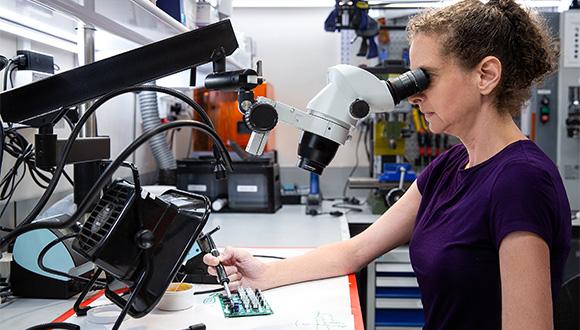The Molecular, Cellular & Systems Neurobiology Track
This program is designed for students who are interested in progressing to specialize in basic research fields in neuroscience. Such research will contribute a great deal to a basic understanding of how the brain works, from the molecular level to the development and improvement of biomedical machinery, to understanding and getting involved in developing treatments for nervous system disorders such as Alzheimer’s, Parkinson’s, and ALS, and mathematical modeling of complex processes, from molecular movements to learning and decision-making processes.
Graduates of this track will be able to proceed to higher education institutions and research institutes or to work in hi-tech in the fields of AI and human-machine interactions, in advanced technological industries, in medical institutions, in biotechnological industries, in electronics companies, and more. The core modules will present students the main concepts and research methods, as well as the frontiers of contemporary research into the brain. The research seminars will bring students up to speed with modern research fields, and the research methods courses will introduce students to advanced working methods in a range of disciplines. The elective courses will enable students to deepen their knowledge in specific research fields in the study of the brain and will prepare them for work in their respective research programs.
Studies for a university-approved degree in
the Molecular, Cellular & Systems Neurobiology program
In the first year, students will be given the option of performing up to two rotations (three months each) in two of the Sagol School of Neuroscience’s laboratories. During each rotation, students are able to join a research project in the laboratory, learn about the research methods used in their laboratory (no credits), and complete a short research project.
Choosing a supervisor for M.Sc. research
- Students must choose a faculty member at the Sagol School of Neuroscience as their final thesis supervisor and receive their written approval for the subject of their research after completing their rotations, toward the end of the second semester, before the start of exams. A supervisor can also be chosen without completing the rotations.
- Students can finish auditing their courses in three semesters, and they must submit in their final thesis at the end of the fourth semester.
- At the end of the second semester in the program, students must present an interim report, which will form the basis for their M.Sc. thesis. If students must complete supplementary classes in the framework of the course prerequisites, the studies will be conducted as remedial courses.


